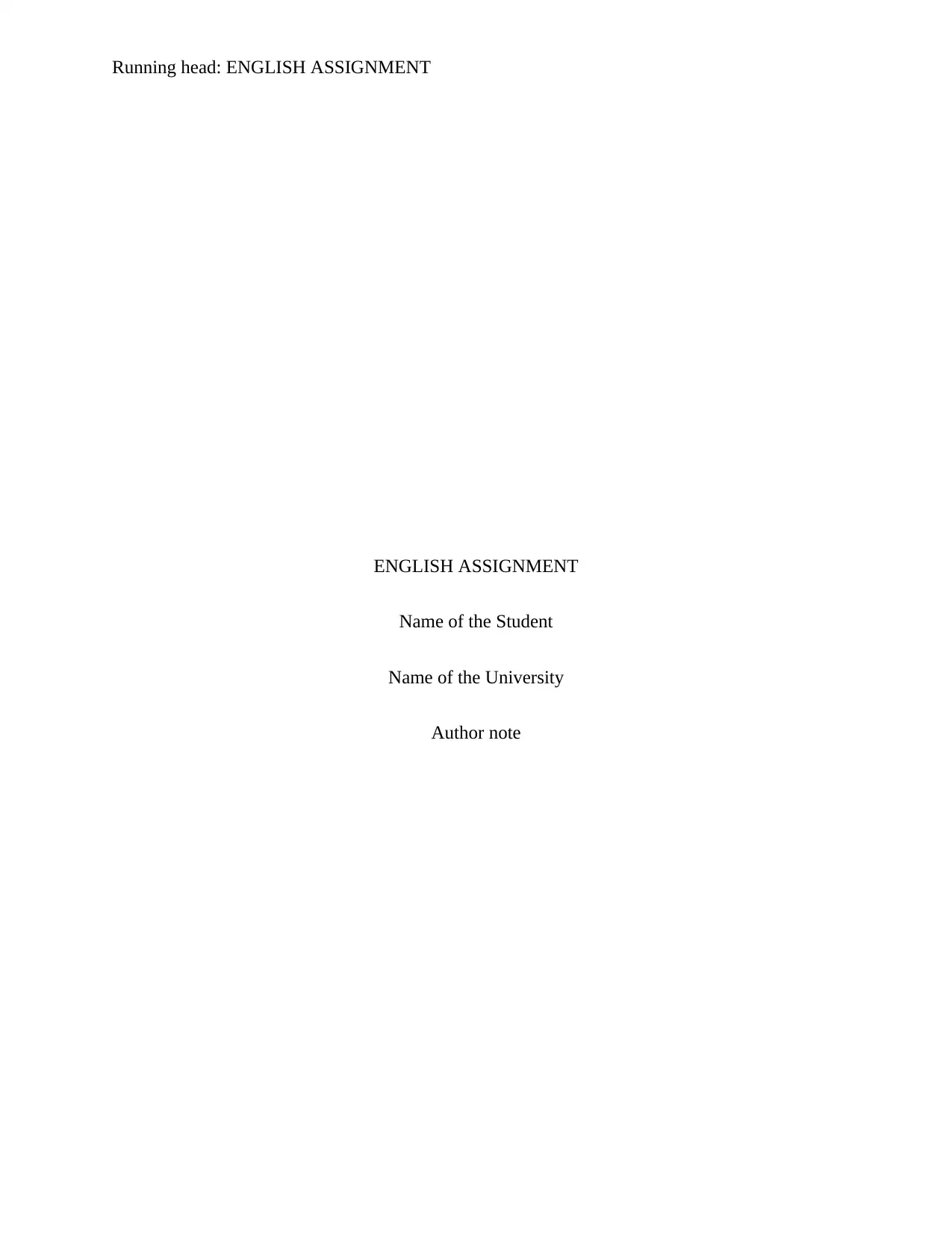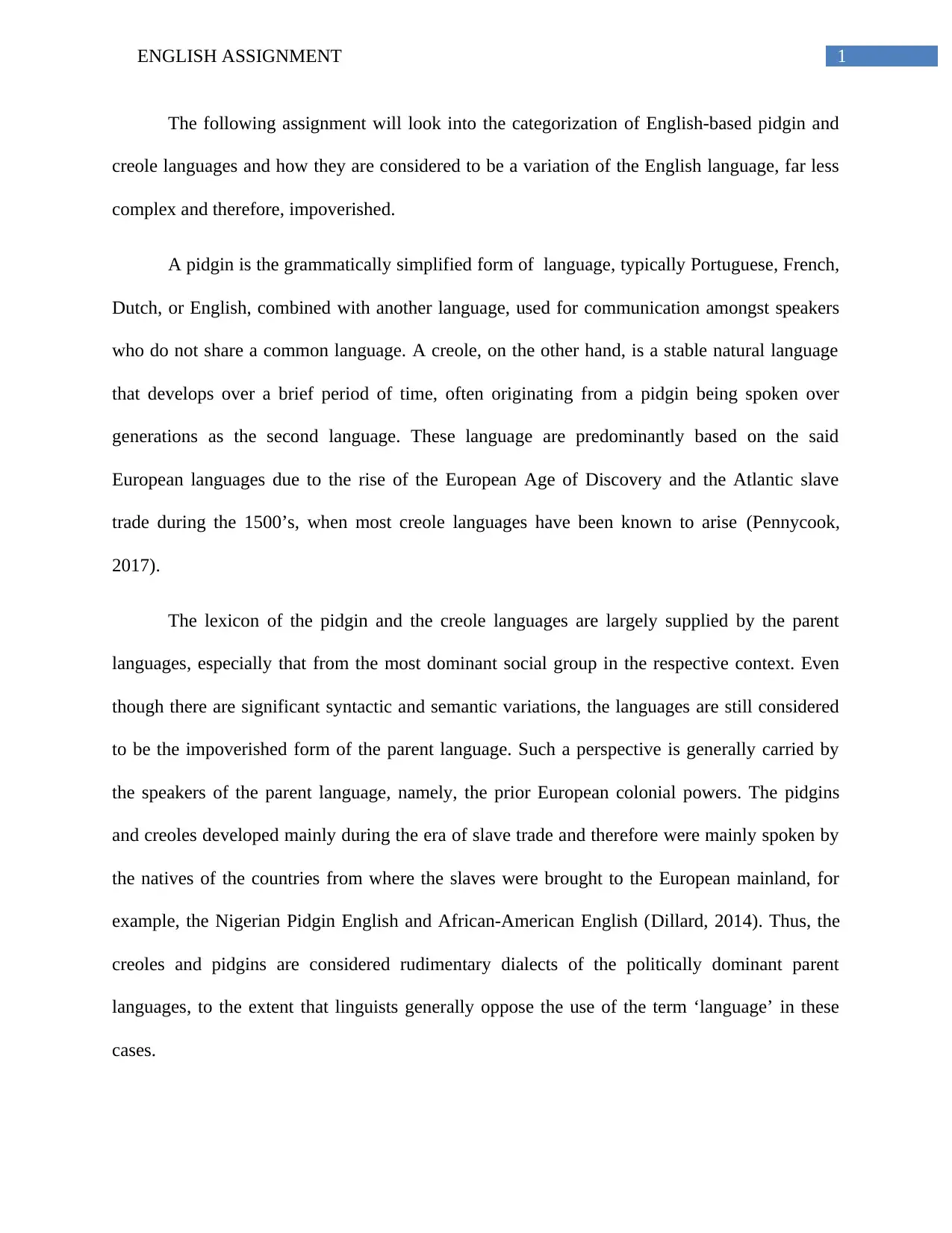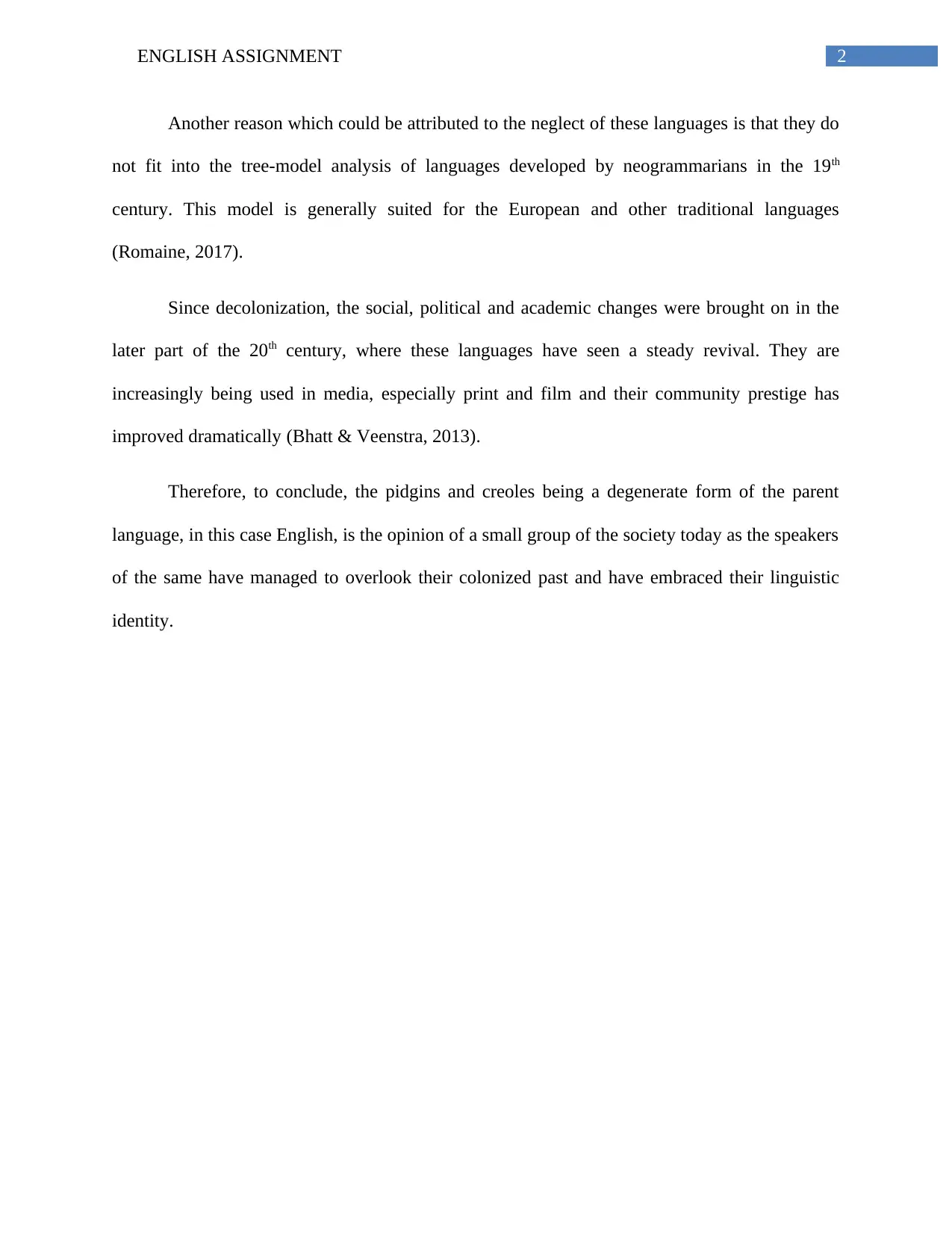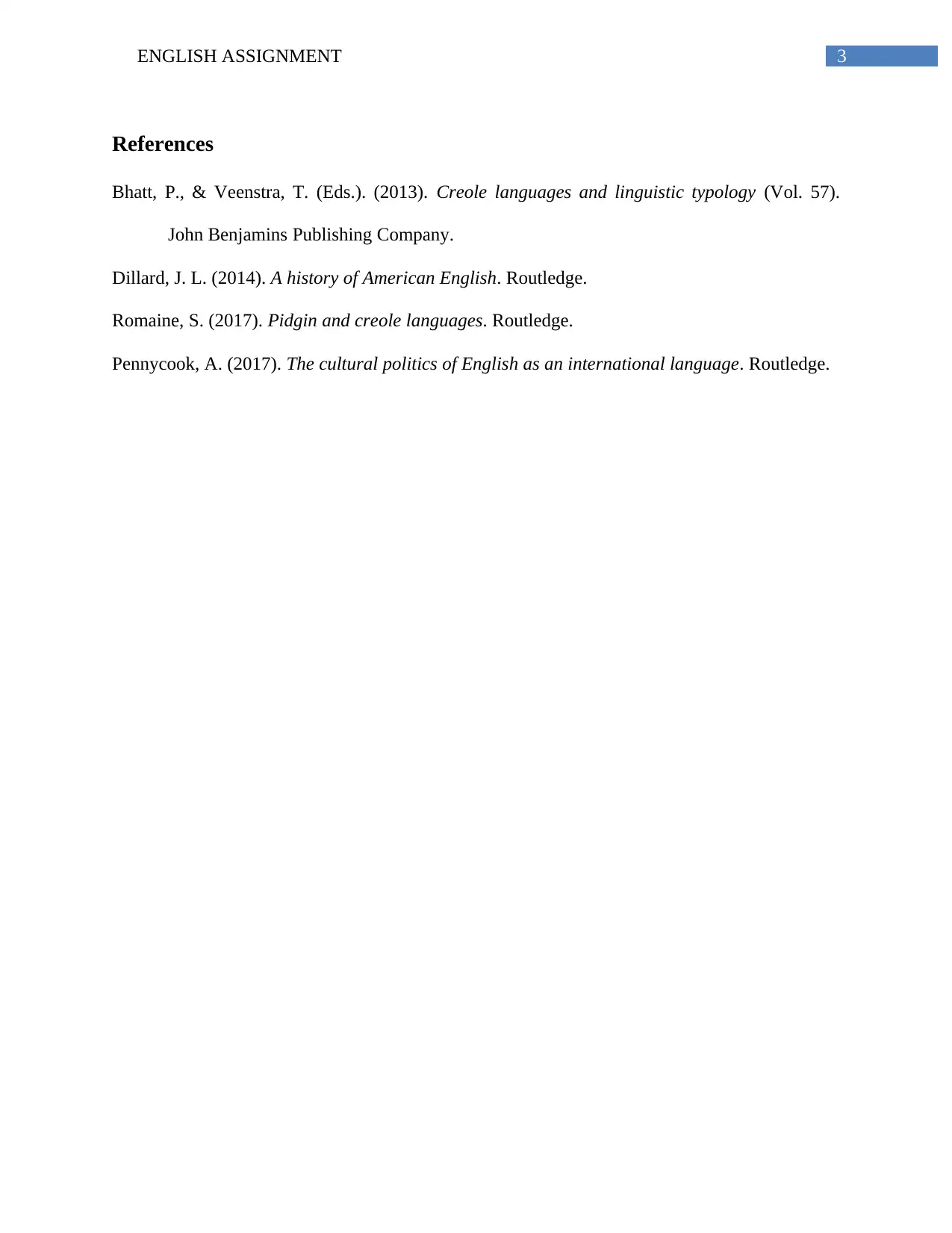An Analysis of English Pidgin and Creole Languages: A Study
VerifiedAdded on 2022/11/01
|4
|585
|435
Essay
AI Summary
This essay delves into the categorization of English-based pidgin and creole languages, examining their historical context and linguistic features. It explores how these languages, derived from English, are often perceived as simplified forms. The essay highlights the origins of pidgins and creoles, focusing on their development during the era of the Atlantic slave trade and the influence of European colonial powers. It also touches upon the social and political factors that have shaped the perception of these languages, including the impact of decolonization and the rise of their use in media. The essay references key works in the field to support its analysis and concludes by emphasizing the evolving perspectives on pidgin and creole languages, reflecting a shift towards embracing linguistic diversity and identity.
1 out of 4





![[object Object]](/_next/static/media/star-bottom.7253800d.svg)